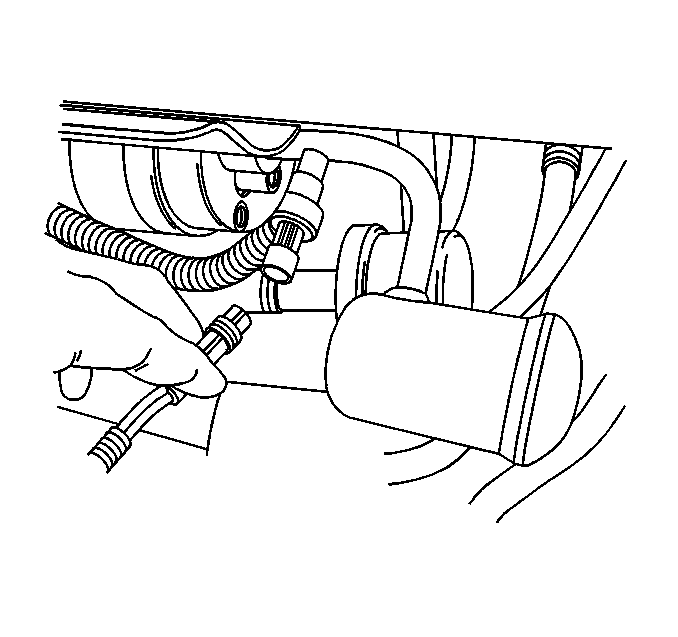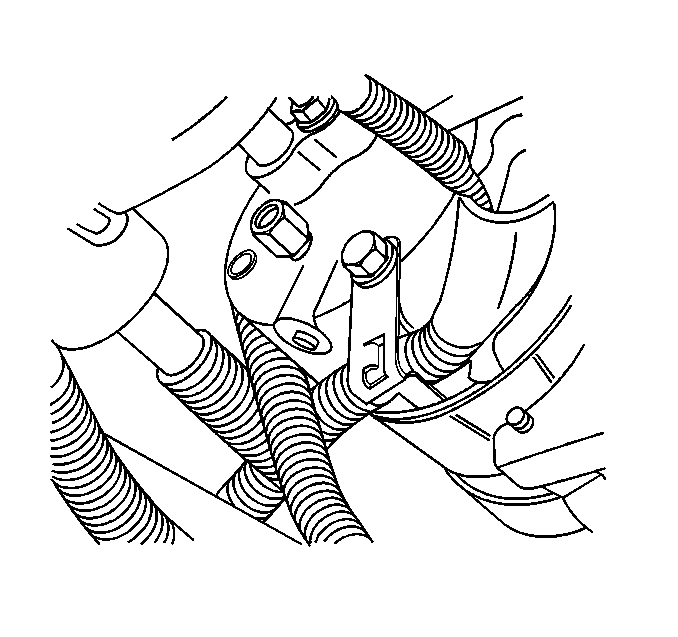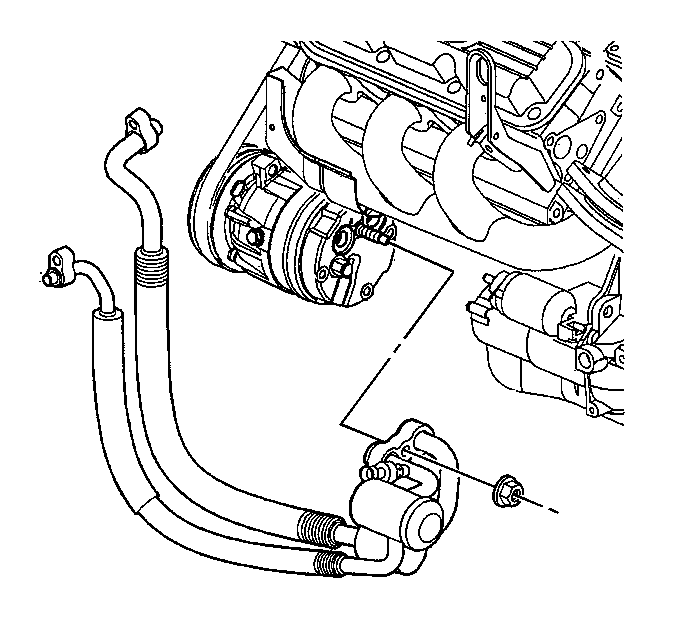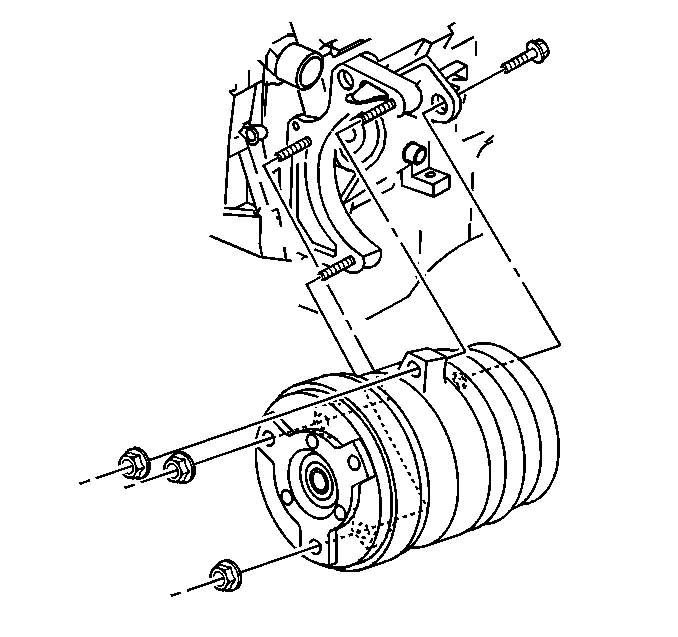Tools Required
J 39400-A Halogen Leak Detector
Removal Procedure
- Recover the refrigerant. Refer to Refrigerant Recovery and Recharging .
- Disconnect the negative battery cable. Refer to Battery Negative Cable Disconnection and Connection in Engine Electrical.
- Remove the accessory drive belt. Refer to Drive Belt Replacement in Engine Mechanical.
- Raise and support the vehicle. Refer to Lifting and Jacking the Vehicle in General Information.
- Remove the right wheelhouse extension. Refer to Wheelhouse Panel Replacement in Body Front End.
- Remove the lower air deflector. Refer to Front Air Deflector Replacement in Body Front End.
- Disconnect the electrical connector from the compressor.
- Disconnect the electrical connector from the A/C pressure sensor.
- Remove the retaining bolt from the wiring harness bracket.
- Remove the A/C compressor hose from the compressor.
- Remove the front compressor mounting nuts.
- Remove the rear compressor mounting bolt.
- Remove the compressor.
- If replacing the compressor, drain and measure as much of the oil as possible from the removed compressor:




| 14.1. | Drain the oil from both the suction and discharge ports of the removed compressor into a clean container. |
| 14.2. | Remove the compressor crankcase oil drain plug and drain the crankcase oil into the same container. |
| 14.3. | Measure and record the amount of oil drained from the removed compressor. |
This measurement will be used during installation of the replacement compressor.
| 14.4. | Properly dispose the used PAG oil. |
Installation Procedure
Important: The replacement compressor is shipped without PAG oil.
Refer to Refrigerant System Capacities for compressor oil capacity.
- Add the proper amount of PAG oil to the compressor.
- Install the compressor.
- Install the mounting nuts and the bolt.
- Install the rear bolt to the compressor.
- Install the A/C compressor hose to the compressor.
- Connect the electrical connection to the compressor.
- Connect the electrical connection to the A/C pressure sensor.
- Install the retaining bolt to the wiring harness bracket.
- Lower the vehicle.
- Install the accessory drive belt. Refer to Drive Belt Replacement in Engine Mechanical.
- Connect the negative battery cable. Refer to Battery Negative Cable Disconnection and Connection in Engine Electrical.
- Recharge the A/C system. Refer to Refrigerant Recovery and Recharging .
- Leak test the fittings of the component using the J 39400-A .
- Install the lower air deflector. Refer to Front Air Deflector Replacement in Body Front End.
- Install the right wheelhouse extension. Refer to Wheelhouse Panel Replacement in Body Front End.

Notice: Use the correct fastener in the correct location. Replacement fasteners must be the correct part number for that application. Fasteners requiring replacement or fasteners requiring the use of thread locking compound or sealant are identified in the service procedure. Do not use paints, lubricants, or corrosion inhibitors on fasteners or fastener joint surfaces unless specified. These coatings affect fastener torque and joint clamping force and may damage the fastener. Use the correct tightening sequence and specifications when installing fasteners in order to avoid damage to parts and systems.
Tighten
Tighten the nuts to 50 N·m (37 lb ft).
Tighten
Tighten the bolt to 50 N·m (37 lb ft).
Important: Inspect the seal washers for damage before reinstalling the A/C lines and hoses.
If any damage is noted during inspection, the suspect seal must be replaced. Flat washer type seals do not require lubrication.
Tighten
Tighten the nut to 39 N·m (31 lb ft).


Tighten
Tighten the bolt to 12 N·m (9 lb ft).
